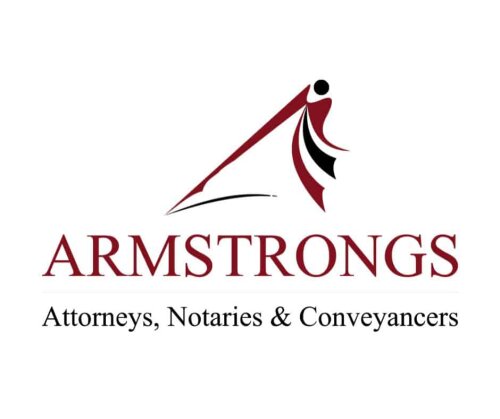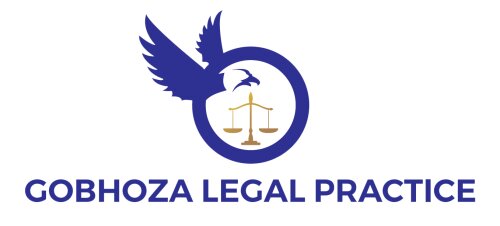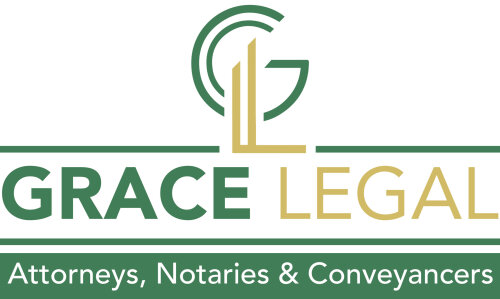Best Nonprofit & Charitable Organizations Lawyers in Botswana
Share your needs with us, get contacted by law firms.
Free. Takes 2 min.
Or refine your search by selecting a city:
List of the best lawyers in Botswana
About Nonprofit & Charitable Organizations Law in Botswana
Nonprofit and charitable organizations in Botswana play a crucial role in various sectors, including social services, health, education, and environmental protection. These organizations are primarily formed to serve public or community needs without profit motivation. In Botswana, they are typically registered as societies under the Botswana Societies Act, which provides the legal framework for their formation, governance, and operation. The Department of Civil and National Registration is responsible for overseeing the registration and compliance of these entities.
Why You May Need a Lawyer
There are several situations in which individuals or groups involved in Nonprofit and Charitable Organizations might require legal assistance in Botswana:
- Registering a new nonprofit or charitable organization: Navigating the legal requirements for setting up an organization can be complex.
- Regulatory compliance: Ensuring ongoing adherence to local laws and regulations to avoid penalties or dissolution.
- Drafting and reviewing contracts: Including funding agreements, service contracts, and employment contracts.
- Tax-related issues: Understanding tax exemptions and obligations as a nonprofit entity.
- Resolving disputes: Handling internal governance issues or disputes with external entities.
- Intellectual property matters: Protecting the nonprofit's brand and intellectual property.
Local Laws Overview
Key legal elements relating to Nonprofit & Charitable Organizations in Botswana include:
- Botswana Societies Act: Governs the registration, operation, and dissolution of societies. All nonprofits must register under this Act to gain legal recognition.
- Income Tax Act: Addresses tax exemptions available to registered nonprofit organizations, although they must apply for tax-exempt status.
- Contract Law: Essential for the negotiation and execution of agreements and partnerships.
- Labor Laws: Nonprofits must comply with labor laws, including fair employment practices and employee rights.
- Intellectual Property Law: Protects branding, logos, and any proprietary content developed by the organization.
Frequently Asked Questions
1. What are the steps to register a nonprofit organization in Botswana?
To register a nonprofit, you must submit an application to the Registrar of Societies, including the organization's constitution and a list of office bearers. This is followed by a review process for compliance with the Societies Act.
2. Are nonprofit organizations in Botswana required to pay taxes?
Nonprofits can apply for tax-exempt status, but they must comply with the provisions of the Income Tax Act to maintain this status.
3. What is the role of the Board of Directors in a nonprofit organization?
The Board of Directors oversees the management of the organization, ensuring it adheres to its mission and complies with legal requirements.
4. Can a foreigner establish a nonprofit in Botswana?
Yes, foreigners can establish a nonprofit in Botswana, but they must adhere to local laws and may need specific legal guidance.
5. How can a nonprofit organization legally raise funds?
Nonprofits can conduct fundraising activities, seek donations, apply for grants, and enter service contracts, ensuring they comply with any relevant laws.
6. Is it mandatory to have a lawyer when forming a nonprofit?
While not mandatory, consulting a lawyer is highly recommended to ensure compliance with legal requirements and to aid in drafting necessary documentation.
7. How can a nonprofit ensure it remains compliant with the law?
Regular reviews of internal policies, procedures, and legal consultations can help ensure ongoing compliance with relevant laws and regulations.
8. Can a nonprofit in Botswana engage in commercial activities?
Yes, but any profits must be used to further the mission of the organization and not distributed as dividends.
9. What happens if a nonprofit organization fails to comply with the Societies Act?
Non-compliance can lead to fines or the dissolution of the organization by the Registrar of Societies.
10. Are there specific reporting requirements for nonprofits in Botswana?
Yes, nonprofits must regularly report their financials and operational status to the appropriate regulatory bodies as required under the law.
Additional Resources
For further assistance, you can contact the following resources:
- Registrar of Societies: Provides guidance on the registration and compliance of nonprofit organizations.
- Botswana Unified Revenue Service (BURS): Assists with understanding tax-exempt status and requirements.
- Legal Aid Botswana: Offers legal assistance and advice, especially to organizations without financial means.
- Ministry of Nationality, Immigration and Gender Affairs: Regulates and provides resources for nonprofit operations in Botswana.
Next Steps
If you need legal assistance in setting up or managing a nonprofit or charitable organization in Botswana, consider taking the following steps:
- Research potential law firms or legal professionals specializing in nonprofit law.
- Schedule consultations to discuss your needs and understand their approach.
- Gather all relevant documentation relating to your organization for review.
- Consider joining a local network or association of nonprofit organizations for additional support and guidance.
Ensuring legal compliance and best practices will enhance your organization's credibility and sustainability, allowing you to focus on achieving your mission.
Lawzana helps you find the best lawyers and law firms in Botswana through a curated and pre-screened list of qualified legal professionals. Our platform offers rankings and detailed profiles of attorneys and law firms, allowing you to compare based on practice areas, including Nonprofit & Charitable Organizations, experience, and client feedback.
Each profile includes a description of the firm's areas of practice, client reviews, team members and partners, year of establishment, spoken languages, office locations, contact information, social media presence, and any published articles or resources. Most firms on our platform speak English and are experienced in both local and international legal matters.
Get a quote from top-rated law firms in Botswana — quickly, securely, and without unnecessary hassle.
Disclaimer:
The information provided on this page is for general informational purposes only and does not constitute legal advice. While we strive to ensure the accuracy and relevance of the content, legal information may change over time, and interpretations of the law can vary. You should always consult with a qualified legal professional for advice specific to your situation.
We disclaim all liability for actions taken or not taken based on the content of this page. If you believe any information is incorrect or outdated, please contact us, and we will review and update it where appropriate.
Browse nonprofit & charitable organizations law firms by city in Botswana
Refine your search by selecting a city.















